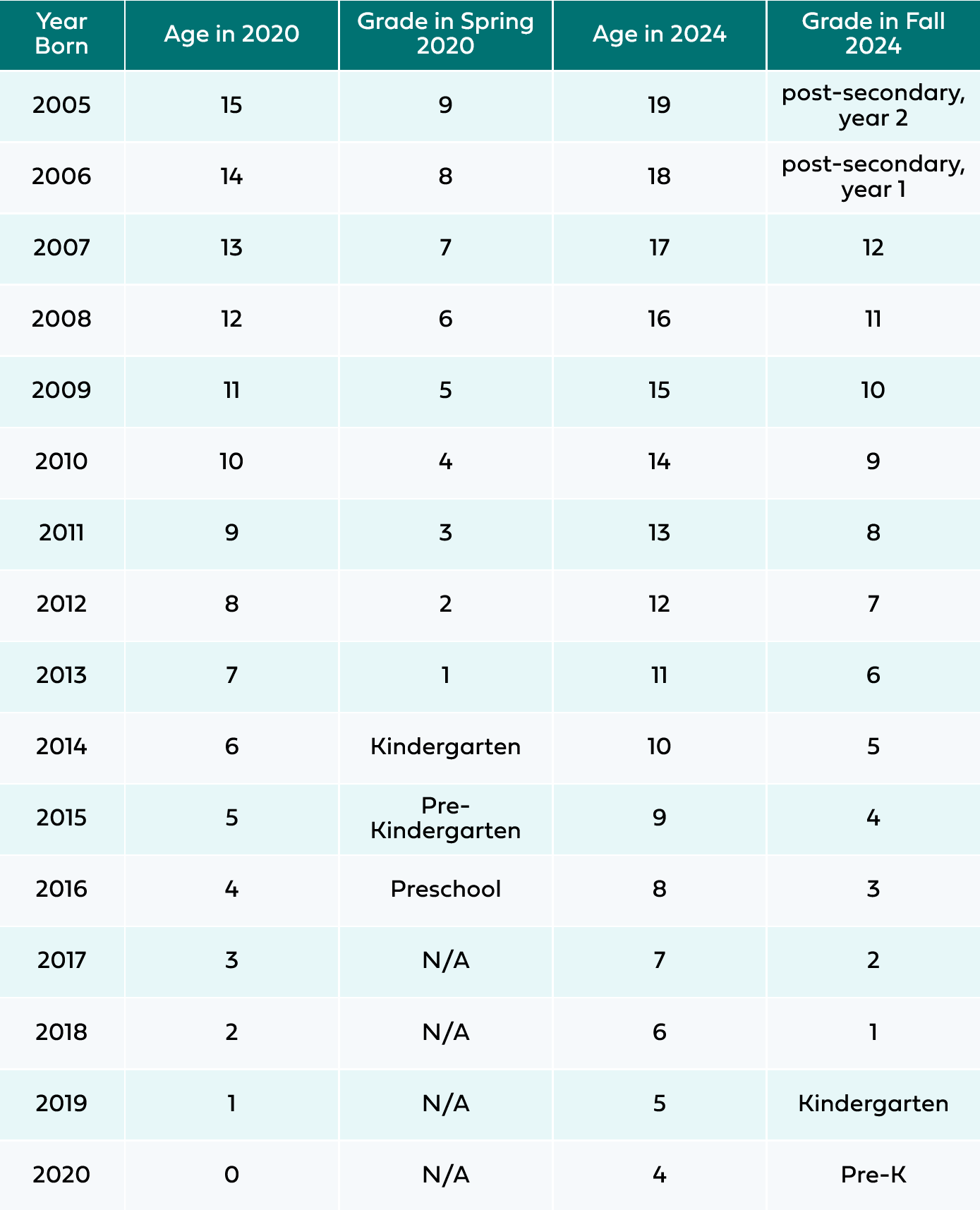Making the case for teens born between 2007 and 2013 to become the next micro-generation

By Gina Desiderio
July 19, 2024
What the sigma!? “Gen Alpha” is skibidi ohio toilet! Today’s tweens and teens are “Gen Sigma.” No cap!
(For those of us who need that translated, “What the heck!? “Gen Alpha” is no good and not an accurate term! Today’s tweens and teens should be called Gen Sigma. No lie.”)
If my 14- and 12-year-old sons were reading this, they’d tell me I’m just “so cringe,” as they rolled their eyes in disbelief that I just wrote that.
If you want more education on the latest adolescent slang of today, like what’s a “gyat,” I’d suggest checking out Instagram or TikTok, as there are plenty of explainers available. One of my favorites is a middle school math teacher @mr_phillindsay_sped.
Whether you’re working directly with them, or raising them, if you’re in earshot of adolescents today—supposedly Generation Alpha—then these phrases are not new to you.
Maybe it’s just me, being totally immersed in middle school culture, every day in my house, but IMHO, while “Generation Alpha” may have been the term of choice some years ago, Generation Sigma is much more appropriate.
Maybe it’s just me, being totally immersed in middle school culture, every day in my house, but IMHO, while “Generation Alpha” may have been the term of choice some years ago, Generation Sigma is much more appropriate.
My 14-year-old, born in mid-2010, insists he’s the tail end of Gen Z, and I absolutely believe it’s the individual’s right to place themselves in the generation they think fits best, especially for those of us born in the start/end year. This is coming from a staunch Gen Xer here, born in 1980…okay, maybe the micro-generation, Xennial, but absolutely never Millennial as that’s definitely not the right fit for me.
The breakdown of generations, though heavily debated and with fuzzy cutoffs, usually goes something like this:
- Generation Alpha: 2010 – 2025
- Generation Z: 1996 – 2010
- Millennials: 1981 – 1996
- Xennials: 1977 – 1983/85
- Generation X: 1965 – 1980
- Baby Boomers: 1946 – 1964
- Silent Generation: 1928 – 1945
- Greatest Generation: 1901 – 1927
Google tells me that Generation Alpha is a term used to describe people born between 2010 and 2025, introduced by Australian social researcher Mark McCrindle in a 2008 report. But in a post-COVID-19 world, I do think we need to take another look at this breakdown. Maybe it’s another micro-generation, maybe not. Sometimes, it takes the passing of time to clearly determine it.
But I think it’s safe to say that the global pandemic significantly changed the life experience of today’s teens and tweens, in ways we don’t yet understand. The research on the pandemic’s effects on young people today is only just now beginning, and we have much more to learn.
Let’s take a look at the age/grade breakdown, from the spring of 2020 when schools shut down, to today, the summer of 2024:

Just as we hear that Generation X and Xennials span the bridge of the Internet, media, and cell phones, living both without and with, Generation Sigma will likely remember a world pre-COVID and post.Just as we hear that Generation X and Xennials span the bridge of the Internet, media, and cell phones, living both without and with, Generation Sigma will likely remember a world pre-COVID and post. They will long tell stories of how they came home from school on that ominous Friday the 13th thinking it’d be a few weeks of fun, only to see the world shut down and change forever. Moreover, the political unrest and turmoil that took place at this same time, the life-altering judicial branch decisions, and the threats to our country’s system of government…I won’t go further down this path because it’s just too scary to think about, but let us all hope they don’t also have stories to tell of a before and after of American democracy. How will living in this world, in these times, change their outlook on life? How will it change how they set goals and approach challenges? We don’t know the answers yet. But I think we do know enough to know that they are their own Generation, or at least a micro-generation. For me, at least while I’m trolling my boys, Gen Alpha is Gen Sigma. If you’d like to join us in pondering more on what it means to be an adolescent today, that is just the focus of #HealthyTeen24. Join us for Rise, Reimagine, and Reinvent, November 18-20, in Phoenix, Arizona. Let’s reflect on what sets today’s young people apart and be ready for what(ever) the future may hold. Early bird registration ends August 15. Get your ticket today!
Gina Desiderio, MA, is Director of Communications for Healthy Teen Network and oversees all of our communications and dissemination. Working here has only sometimes prepared Gina for spontaneous sex-positive conversations with her two young sons. Read more about Gina.







